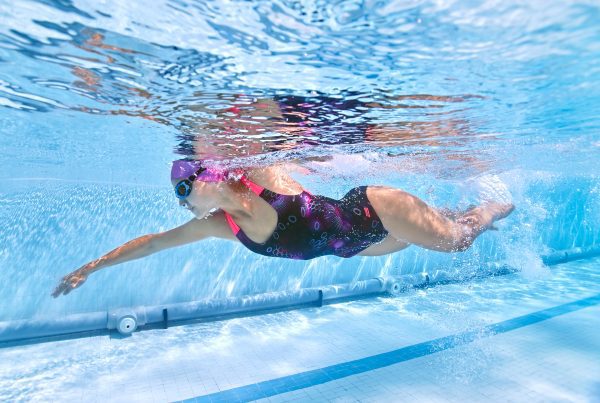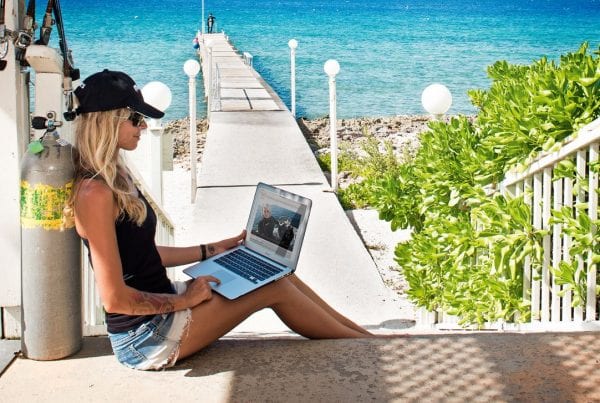Scuba diving is a very safe sport, providing you follow your training and take sensible precautions at all times. While diving is a fun activity, it’s also important never to become complacent and take shortcuts. That’s when things can go dangerously wrong.
One thing you learn in SSI’s Diver Stress and Rescue programme – and which is proven time and time again by accident investigations, is that most emergency situations related to diving are usually preventable. It’s often a combination of small things that are not identified and dealt with, that will lead to a full on incident.
We’ve written some hints and tips below, highlighting some of the most important safety factors, when diving in the sea. These tips are based on our 25 years’ experience in the diving industry and supported by research and advice from Scuba Schools International (SSI), the Royal National Lifeboat Institution (RNLI), Maritime & Coastguard Agency (MCA) and the Divers Alert Network (DAN).
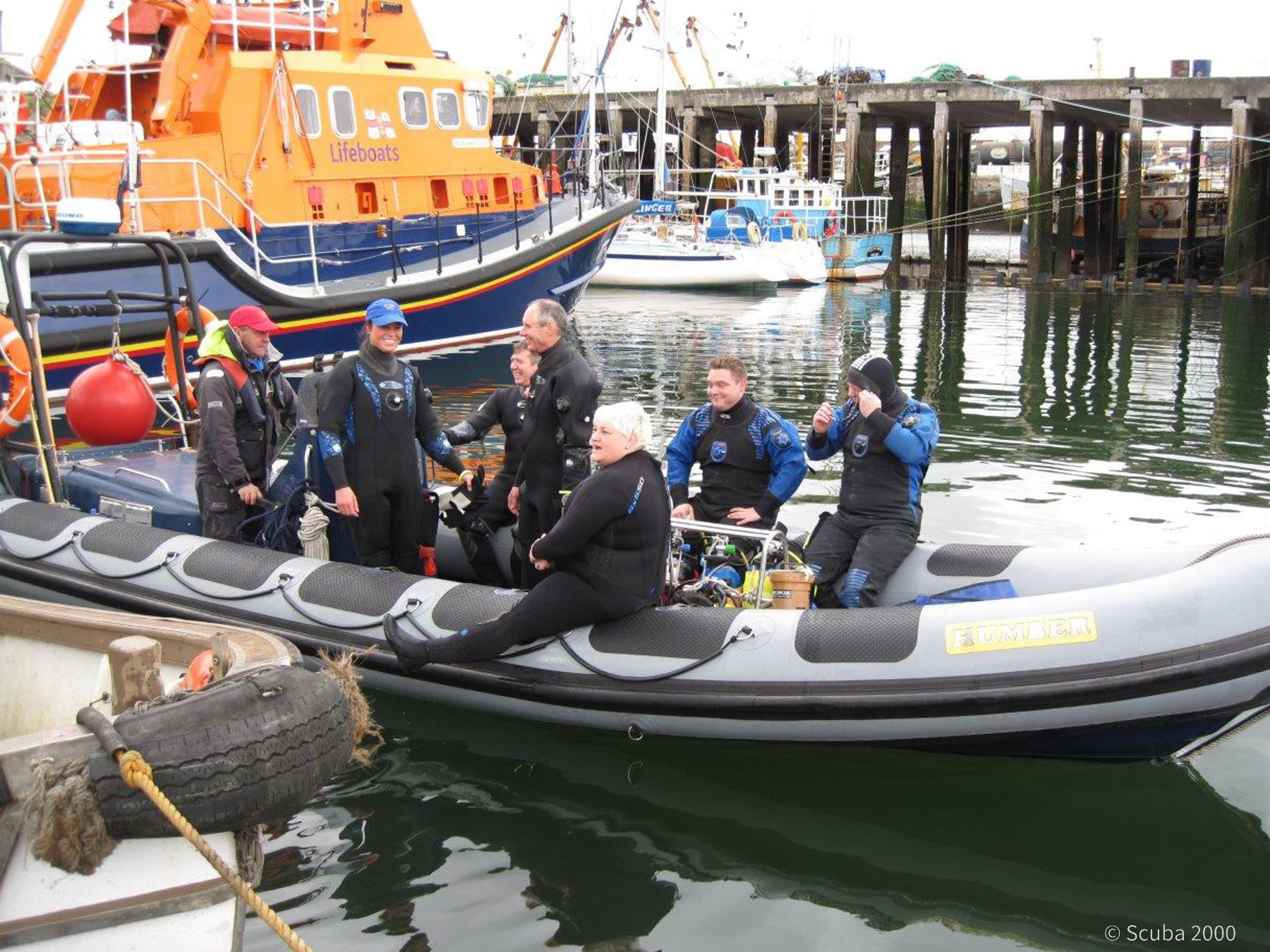
Diving can be great fun, providing you follow your training and safety protocols.
The Responsible Diver Code
As a diver, you have an opportunity to experience some of the world’s most amazing underwater ecosystems.
SSI divers agree to the following Responsible Diver Code during their training. However, all divers should really follow the same or similar principles, since they are designed to increase your safety as well as ensuring dive sites can be enjoyed for generations to come.
- Dive within the limits of my ability and training
- Evaluate conditions before every dive, and make sure they are within the limits of my personal abilities and training
- Be familiar with and check my equipment before and during every dive
- Respect and use the buddy system during every dive
- Accept responsibility for my personal welfare at all times
- Be environmentally conscious at all times.
These points are great general principles to follow, wherever you’re diving.
But, let’s now look specifically at 6 ways to stay safe when diving in the sea.
1) Your Health
Health is one of the major contributors to diving accidents. Cardiac health specifically can affect any divers, but the RNLI research shows that those most at risk are experienced male divers aged 45 and over.
50 divers lost their lives around the UK coast between 2011 and 2015 – and 72% of those divers were aged 45 or over. ~ RNLI Research
This means that while taking training and safety precautions is still really important, overlooking your personal health and fitness could be big mistake.
There’s no time like the present to make certain changes to your lifestyle, that will help you become a safer diver. Diving can be strenuous and even more so, when diving in challenging sea conditions such as strong currents, waves and cold water. Your fitness should really be proportionate to the conditions you dive in – for example the UK coast can be much more physically challenging than diving in the warm clear waters of the Red Sea.
You don’t need to become an Olympic athlete – but you do need to take care of yourself. This can be as simple as these 5 steps:
- Incorporating more exercise such as walking, jogging or swimming into your routine
- Reducing unhealthy foods and lowering fat and salt intake
- Staying hydrated with plenty of water each day but especially in the lead up to and during a dive trip
- Limiting or even better, eliminating alcohol consumption
- Quit smoking.

Image by Free-Photos from Pixabay
2) Check your equipment
Equipment is your life-line while diving and a primary factor for your safety and comfort in the water. For this reason, it’s crucial to always invest in the best quality equipment that you can afford, make sure the equipment fits well, is suitable for the diving conditions and above all, is looked after and well-maintained.
It’s vital to check your equipment often. Here’s 5 basic points you should always follow:
- Before every dive, inspect your kit for any signs of wear and tear; worn webbing, lose clips, broken buckles, tears or rips, worn mouthpieces etc.
- Ensure the dust / protection caps are always in place when you are not using your equipment
- Freshwater wash all your equipment after each use. While you do this, again check for any wear and tear – it’s good to spot this and resolve any issues before your next trip.
- Ensure that everything is fully dry before packing away and storing in a dry location.
- Follow manufacturer and local guidelines for servicing – it’s crucially important for regulators, tanks and BCDs to be serviced properly by qualified service technician.
You can learn much more about selecting and maintaining your equipment through the SSI Equipment Techniques course. This is highly recommended if you are new to diving and want to build on the foundation knowledge of your entry level training.
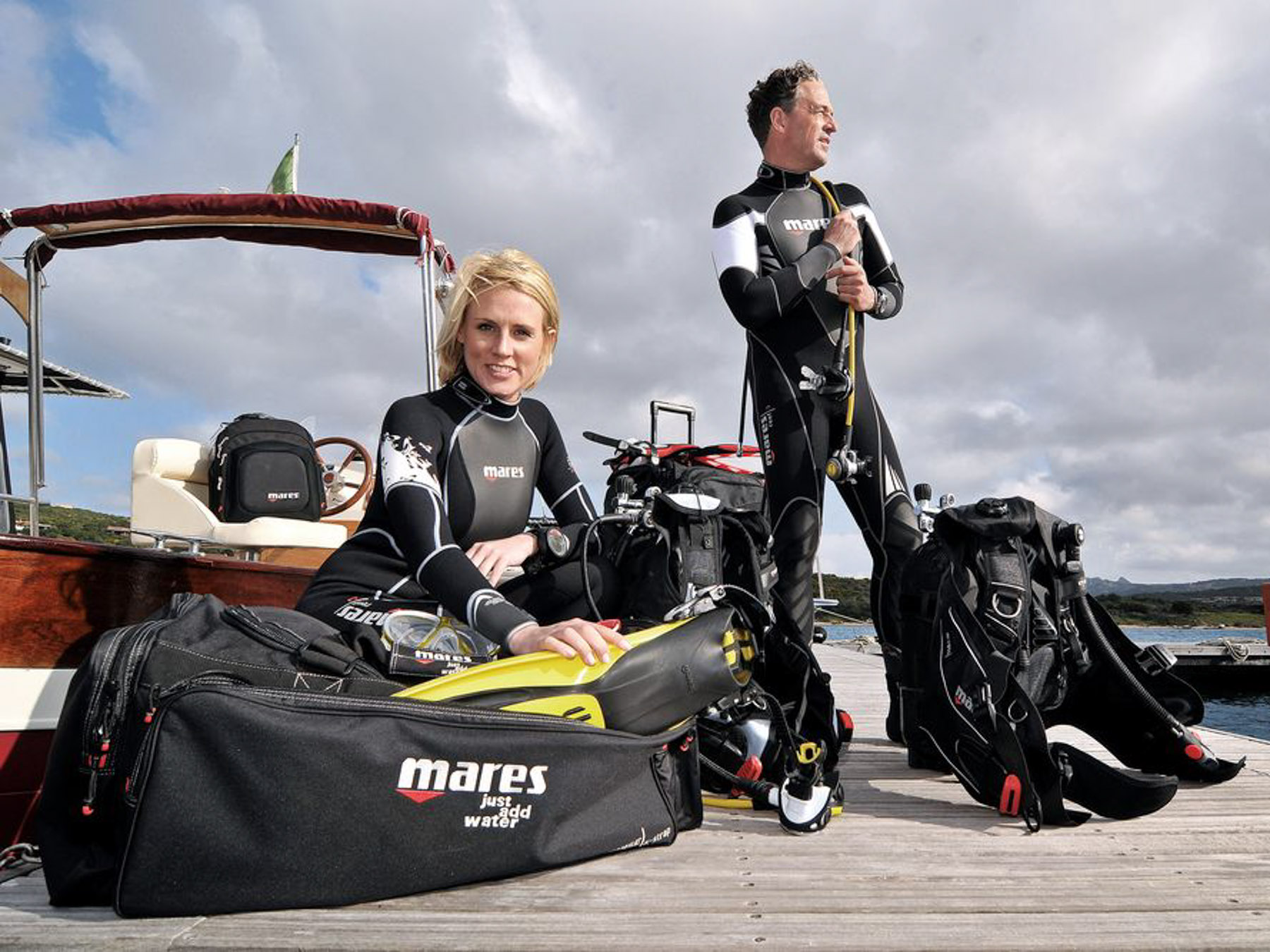
Photo courtesy, Mares
3) Plan your dives and consider your experience
Dive planning and ensuring that you have the appropriate training and experience for the diving you will be doing are two really important factors. In addition, you must also consider the dive parameters, such as maximum depth, time, air consumption rates, emergency procedures etc.
When you dive with us, we will ensure everything is properly planed, including tide times, weather and risk assessments. However, if it’s just you and your buddy diving outside of a dive centre/club environment, you will need to check these aspects as part of your dive planning. Such factors are even more critical in UK waters, where the weather, tides and water conditions can vary dramatically and change quickly.
You must also make sure you are suitably qualified and comfortable to do the diving you will be doing. For example, an Open Water Diver with 10 dives should not take on a 40m wreck dive off the coast, without gaining more training and experience.
Be realistic and build your training and experience slowly and steadily before taking on more challenging diving.
Remember, that we are here to offer any advice you may need. We have helped many hundreds of people over the years to develop experience, at their own pace and become safe, responsible divers.
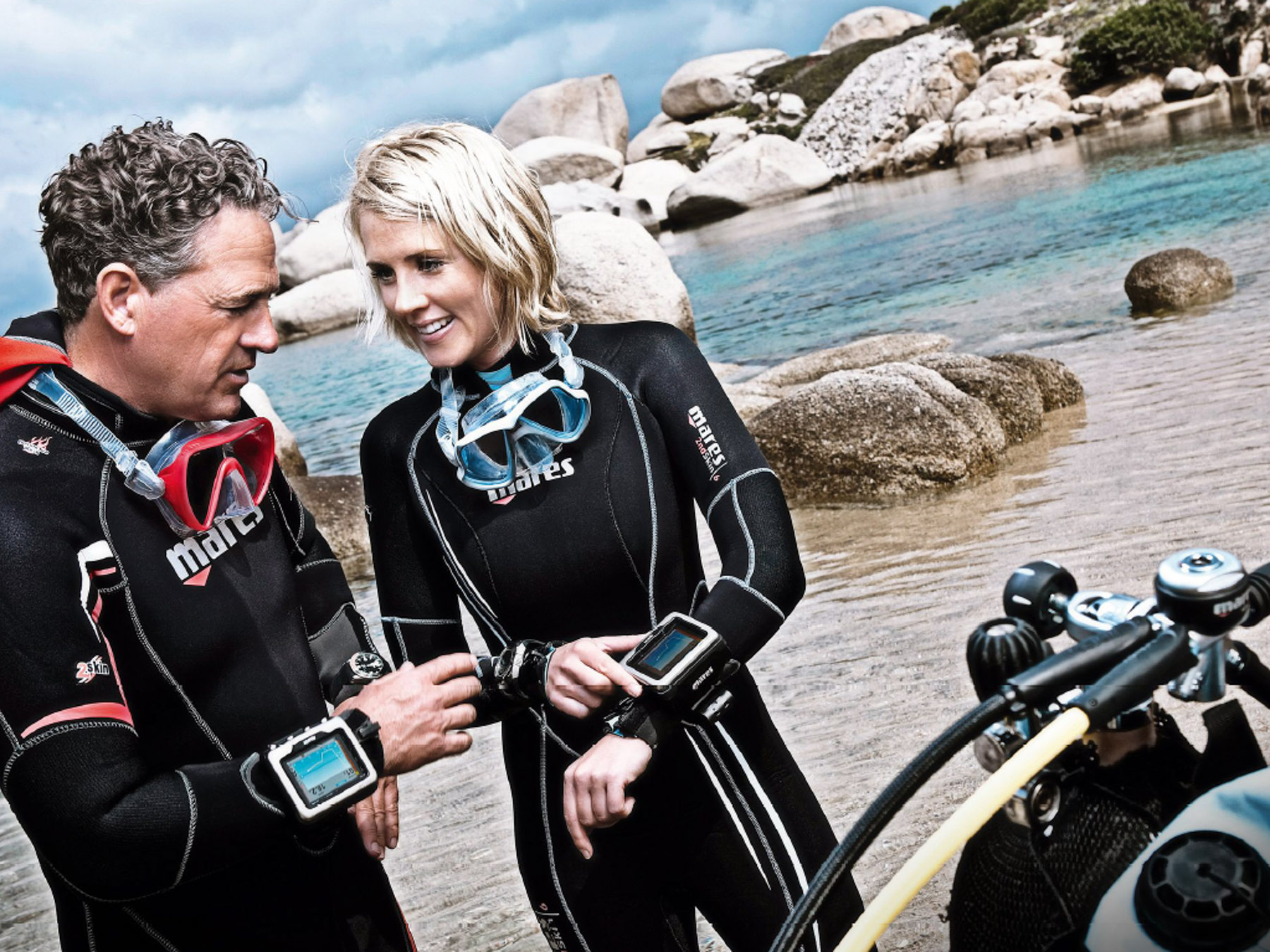
Photo courtesy, Mares.
4) Always complete a buddy check
The fact that the ‘buddy check’ is instilled in you right from entry level training, should tell you that it’s a basic principle that all divers should follow. As divers progress and develop more experience, it’s very easy to become complacent and too relaxed about jumping in the water for a dive. No matter how experienced you are and how many dives you’ve done, you should never skip the buddy check.
After so many years in the diving industry, we’ve seen it all; divers jumping in with no mask, no fins or with their air switched off… you name it! These silly mistakes are easily avoided by a quick check with your buddy before each dive. Besides checking for the obvious things, it’s a great opportunity to become familiar with each other’s kit.
The buddy check is just as important for your buddy as it is for you. If you are diving with somebody new or one of you is using different equipment, then even more reason to run the check. Make sure you understand the equipment they are using, what the safety features are and that everything is functioning correctly.
If you’re unsure about a piece of equipment your buddy is using, be sure to ask them about it. If you have to assist them in an emergency, you will need to know how their equipment works. For the same reason – make sure they understand how yours works!
If something doesn’t appear to be working correctly, address the problem or sit out on that dive. It’s far better to sit out for a dive that risk having an issue underwater. There will always be another opportunity to dive! You should consider carrying a ‘save a dive kit’ if you don’t already. This comprises basic spare parts that will allow for small repairs to be made in the field, such as mask and fin straps, o-rings, spare clips, replacement mouthpieces or hoses.
A final piece of advice – if you are paired with somebody who doesn’t think a buddy check is necessary, then you really should question whether you want to dive with that person. Do you really want to dive with someone who is complacent and wants to take short cuts? It would be a bit like boarding a flight to hear the captain announce “I fly this aircraft all the time, so relax and don’t worry, there’s no need for any safety checks today.” Err… no thanks!
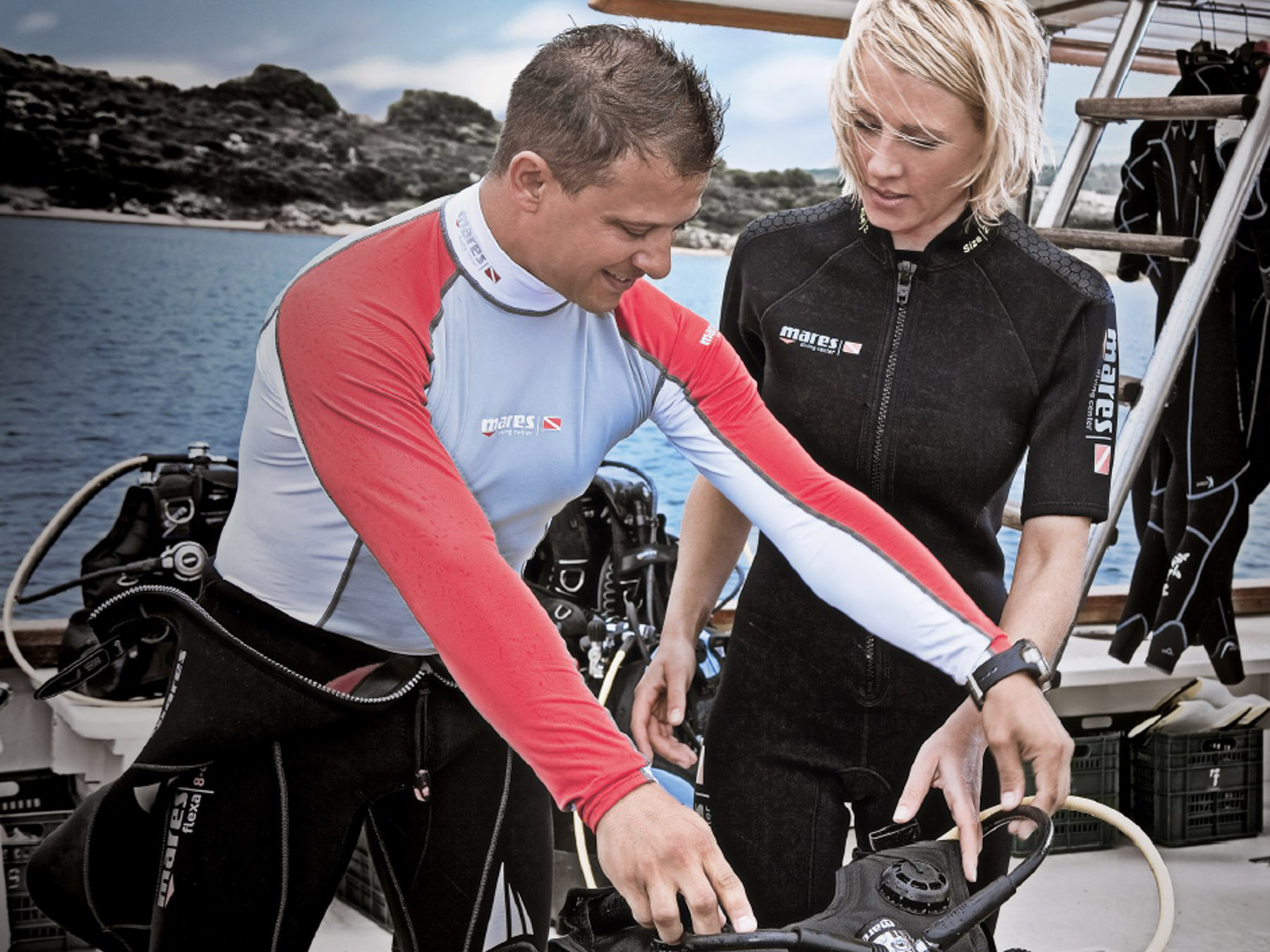
Photo courtesy, Mares.
5) Be spotted
The RNLI, SSI and Scuba 2000 recommend that all divers carry a surface marker buoy (SMB) when diving in the sea. Every diver should have one of their own, in case of separation.
If you surface to find you have drifted away from the boat or shore (which can and does happen – even to very
experienced divers), you massively increase your chances of being spotted with a bright coloured marker buoy sticking out of the water. Many skippers and dive operations around the world will insist that every diver has one, which just goes to show just how important they are.
It’s also advisable to learn how to deploy a delayed SMB (DSMB) from depth. This can be helpful for drift dives, where there is a current running. By inflating the buoy, the skipper can easily keep track of where you are by following it. Practice deploying your buoy in the pool a few times before trying it in deeper water. Mastering this takes a little practice but we are here to help you with that.
For beach dives, SMBs are usually inflated at the surface, allowing support personnel to monitor your position. In an emergency situation or in case of buddy separation, SMBs can also be easily deployed at the surface to make you more visible.
In addition to an SMB, we recommend carrying a whistle to attract attention, a knife/cutting tool that is easily accessible and can be used if you find yourself entangled in fishing line, and a dive light stored in your pocket. Other small items worth considering to help with attracting attention are strobes, glowsticks and a signaling mirror. These items can all be really helpful in dealing with unlikely events that may occur.
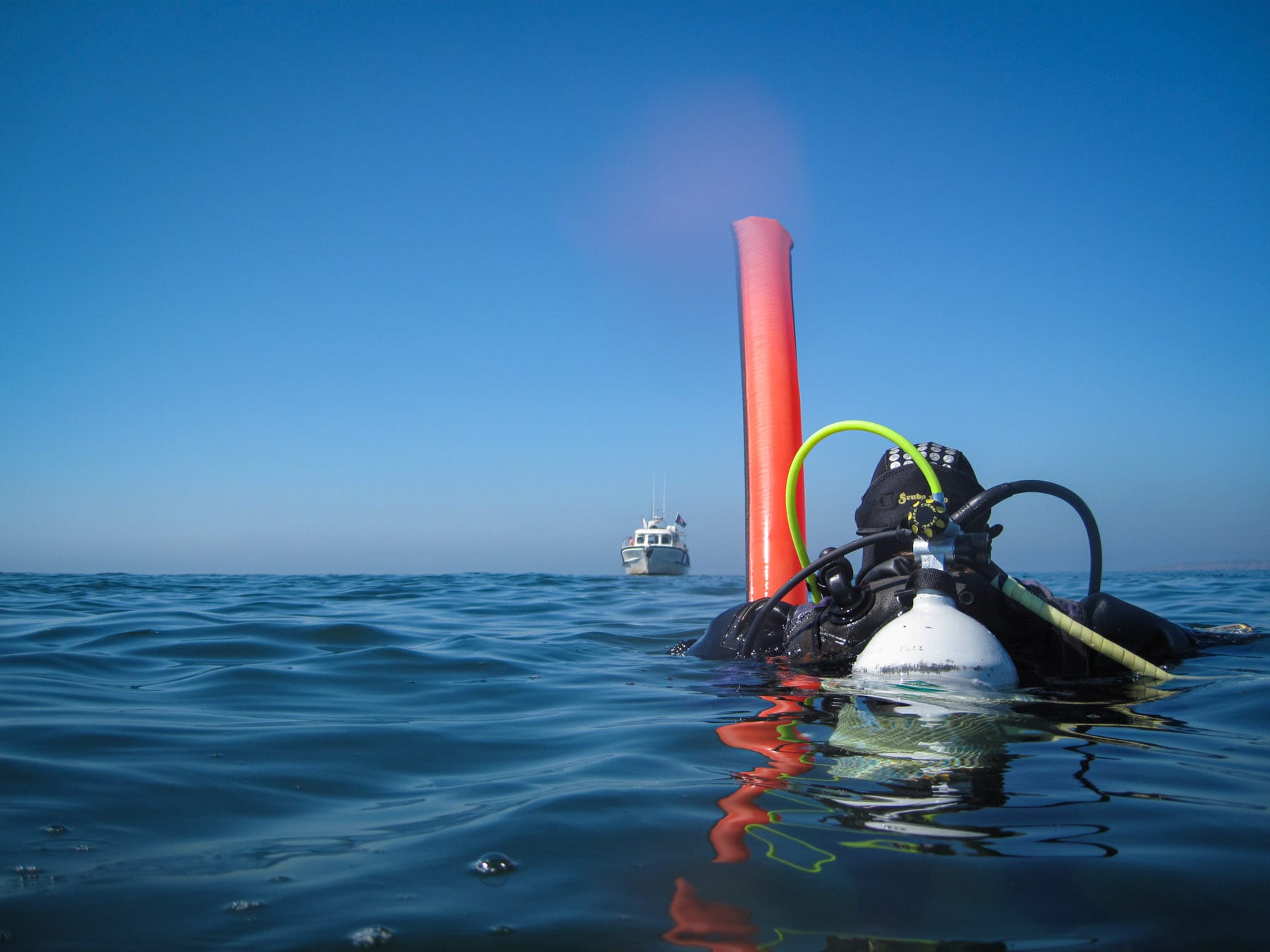
Photo copyright, Scuba 2000
6) Carry a means of calling for help
Another recommendation given by the RNLI and which is becoming more popular these days, is carrying a personal locator beacon (PLB) with you. An SMB will help you be spotted, but only within a limited range. If the worst happens and you find yourself much further away from the shore or boat than you planned, having a PLB with you will rapidly speed up a rescue mission to find you.
They work by transmitting a distress signal and your GPS co-ordinates via satellite. This can rapidly increase your chances of being found by search and rescue teams.
These devices can be easily stored in a waterproof container, inside your BC pocket. You can then rest assured and be confident knowing that it can be easily activated if the worst should happen. Of course – it’s probably never going to be needed but it’s better to be safe.
Final thoughts
It must be remembered that scuba diving with the right training, equipment and dive planning provides a lifetime of fun and adventure. Some of these points may seem like over-kill and yes, it is highly unlikely that you will ever find yourself in a life-threatening situation. However, it is always best to be prepared for any eventuality.
At Scuba 2000, we are always here to offer friendly advice and to make sure you enjoy diving safely and responsibly. So please reach out to us if you have any questions at all or would like more advice about diving safely in the sea.


